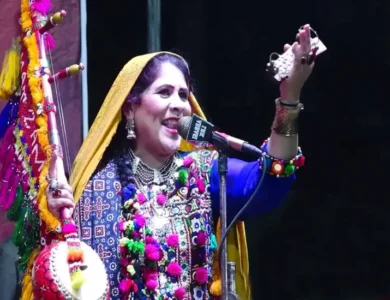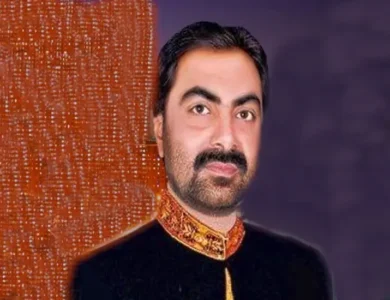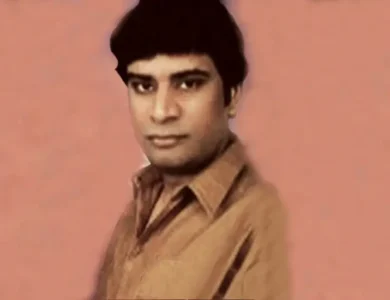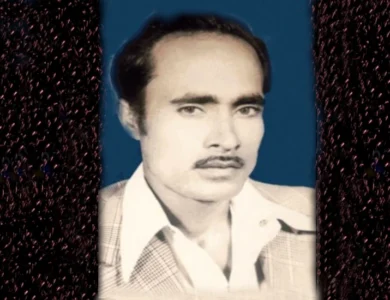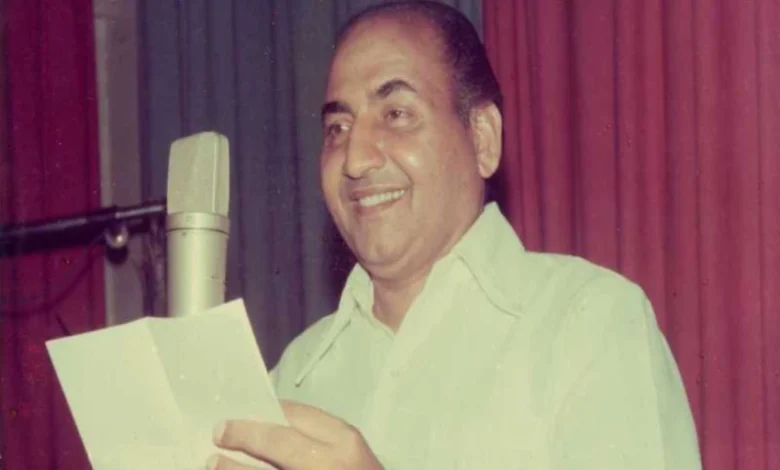
Muhammad Rafi – Bio, Top 80 Best Bollywood Music
Muhammad Rafi, a name synonymous with timeless music and soulful sentiments, is a cornerstone of Bollywood music. His contribution to the Indian music industry is unparalleled, making him one of the most beloved and celebrated musicians in the history of Indian cinema. This article examines the life, career, and enduring legacy of Muhammad Rafi, focusing on his journey from a humble village in Punjab to a legend in Bollywood.
Best Muhammad Rafi Bollywood Music Download
Biography and Early Life
Born on December 24, 1924, in the village of Kotla Sultan Singh in Punjab, Muhammad Rafi’s childhood was dominated by the rich cultural traditions of India. From an early age, Rafi showed a keen interest in music, often imitating the music and songs he heard in his village. His family recognized his talent and encouraged him to pursue proper training. Under the guidance of his mentors, Rafi honed his skills and developed a unique musical style that later became the passion of millions.
Career Beginnings
Rafi’s journey in music began in the 1940s. His first public appearance was at a young age when his talent caught the attention of many music directors. It wasn’t long before he made his debut in the Hindi film industry, singing for “Gaon Ki Gori” in 1945. This marked the beginning of a career that would prove to be immensely popular
Rise and make a name for yourself
The turning point in Rafi’s career came when he collaborated with legendary music director Naushad. Their partnership produced some of the most memorable songs in Bollywood history. One of his early roles was “Mere Sapnon Ki Rani” from the film “Shah Jahan” (1946), where he played K.L. Written by Saigal. This song established Rafi as a rising star in the industry.
Music in a variety of ways
What set Rafi apart from his contemporaries was his versatility. He could effortlessly switch between genres, be they classical, devotional, romantic, or patriotic. His ability to adapt the voice to the actor’s personality on screen made him a sought-after singer from the 1950s through the 1970s.
Special Achievements
Muhammad Rafi’s career is full of brilliant achievements. Throughout his career, he recorded some 26,000 songs in several languages. He won several awards including six Filmfare Awards and one National Film Award. In 1967, the Government of India awarded him the Padma Shri, one of India’s highest civilian awards.
Wonderful music and performances
Rafi’s discography includes an impressive array of songs. From the soulful “Tera Khilona Tutabalak” in “Anmol Ghadi” (1946) to the romantic “Chaudhwin Ka Chand” in the film of the same name, his music has left an indelible mark on the hearts of audiences. His duets with Noor Jahan, such as “Yahan Badla Wafa Ka” from “Jugnu” (1947) showcased his ability to create magic with his voice.
Personal Life
Despite his rise to fame, Rafi remained modest and humble. After the partition in 1947, he chose to stay in India and his family moved to Pakistan. His deep love for his country and its music motivated him to stay. Rafi’s personal life was simple and devoted to his art.
Language skills
One of the most impressive features of Rafi’s career was his multilingualism. He sang many songs in Hindi, Telugu, Magahi, Maithili, Konkani, Bhojpuri, Oriya, Punjabi, Bengali, Marathi, Sindhi, Kannada, Gujarati, Urdu, and more.
Legacy and Influence
Muhammad Rafi’s influence extends beyond his lifetime. His music is still celebrated by fans of all ages. His work has inspired future generations of musicians, and aspiring musicians are studying his techniques.
Collaborating with music directors
Rafi with Naushad, S.D. Burman and Shankar Jaikishan produced some of the biggest hits in Bollywood songs. These associations were crucial in the music scene of the time. Songs like “Yeh Duniya Yeh Mehfil” from “Heer Ranjha” and “Aaj Mausam Bada Beimaan Hai” from “Loafer” are a testament to his versatility and artistry.
Working groups
Though Rafi was primarily known for singing, he made limited appearances in film. In 1945, he sang the song “Tera Jalwa Jis Ne Dekha” in the film “Laila Majnu” These lyrics, though limited, added another layer to his illustrious career.
Awards and Honors
Throughout his career, Rafi received many awards and honors. He won six Filmfare awards, including Best Male Playback Singer for “Chahe Mujhe Koi Jangli Kahe” from “Jangli” (1961), and the National Film Award for his 1967 song “Baiju Bawra” in “Dil Ke Jharoke Mein.” ” from “Brahmachari. (1968) and the author. It was a major milestone. The 1967 Padma Shri further cemented his status as a national icon.
Final Years and Death
Rafi enjoyed continued success and acclaim in the latter years of his career. But his untimely death on July 31, 1980, left a void in the music world. The nation mourned the loss of a legend, but his music lives on and continues to inspire and entertain millions.
Conclusion
Muhammad Rafi’s legacy is one of immense talent, versatility, and humility. His contribution to Bollywood music left an indelible mark and he became a darling in the hearts of music lovers. From his beginnings in Punjab to his rise as a legendary musician, Rafi’s journey is a testament to his extraordinary talent and dedication to his craft and his music remains timeless, inspirational, and a source of joy for generations to come.
FAQs
What was Muhammad Rafi’s first big hit?
Muhammad Rafi’s first feature film was “Mere Sapnon Ki Rani” from the film “Shah Jahan” (1946), directed by K.L. Written by Saigal.
How many songs has Muhammad Rafi recorded?
Muhammad Rafi recorded about 26,000 songs in several languages throughout his career.
In which language did Muhammad Rafi sing?
Rafi sang in Hindi, Telugu, Maghi, Maithili, Konkani, Bhojpuri, Oriya, Punjabi, Bengali, Marathi, Sindhi, Kannada, Gujarati, Urdu, English, Persian, Arabic, Sinhalese, Creole, Dutch and many other languages.
What award did Muhammad Rafi win during his time?
Rafi received six Filmfare Awards, one National Film Award, and the prestigious Padma Shri in 1967 from the Government of India.
What is Muhammad Rafi’s legacy in Bollywood music?
Muhammad Rafi’s legacy in Bollywood music is defined by his versatility, emotional depth, and ability to connect with audiences across generations. His timeless music is still loved by music lovers all over the world.

